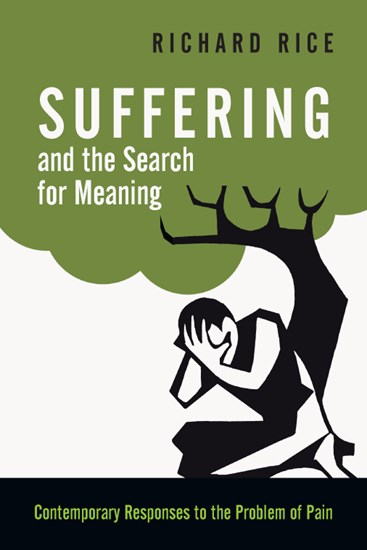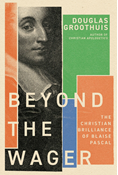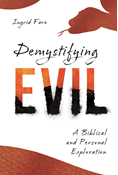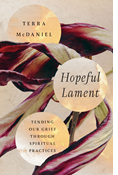
|
Suffering and the Search for Meaning
paperback
|
- Length: 170 pages
- Dimensions: 5.5 × 8.25 in
- Published: June 05, 2014
- Imprint: IVP Academic
- Item Code: 4037
- ISBN: 9780830840373
-
Other Retailers:
Amazon*
*affiliate partner
Suffering is a philosophical problem, but it is much more. It is deeply personal. Why is this happening to me? How can I respond to friends and family in pain and loss, and to people in my care?
Richard Rice guides readers through the seven most significant theodicies—approaches that have been used to make sense of suffering in light of God's justice or control. He considers the strengths and weaknesses of each option, while always guiding us toward greater understanding and compassion. Rice goes further by offering guidelines for constructing a personal framework for dealing practically with suffering, one that draws from philosophy, ethics, theology and real-world experience.
Intending for each of us to find a response to our suffering that is both intellectually satisfying and personally authentic, Rice provides the resources for meeting this challenge. He weaves together the theoretical side of the theodicies with personal stories of people who have experienced great suffering. While no framework can perfectly account for the problem of pain, we are left with the overarching insight that suffering never has the final word.
"The 'why me? why now?' question is probably the most common response of people undergoing serious illness or loss. There are no answers to these questions, just the assurance that with time, and in the presence of compassionate clinicians, chaplains and loved ones, people may find answers for themselves. Rice's book provides a theological roadmap for patients in their reflections on their suffering to assist them in their journey toward inner peace and healing."
"Those who suffer know two things: that suffering calls for silence and that, eventually, it seeks to be understood. Richard Rice respects this double knowledge, honors the limits of what we can say in a crisis and humbly surveys a range of responses to suffering to help his readers speak faithfully in and of pain—their own, and others'."
"Never have I read a philosophical reflection that identifies so deeply with the experience of human suffering. Rice explores the greatest answers to the question, why does God allow suffering? in light of that experience. Here, finally, is a resource for caregivers and those who seek to understand how so much pain could exist in a divinely created world."
"Suffering and the Search for Meaning is a beautiful book. Richard Rice writes gracefully, gently, wisely and sensitively about this most troubling and persistent problem—the pain and suffering of our lives and the lives of those we love. Rice provides a careful and accessible engagement with the most enduring 'solutions' that theologians and philosophers have offered to this problem. He is always careful to give each one its best hearing but never shies away from probing the weaknesses of a particular theodicy. He draws effortlessly and poignantly from popular culture, literature and yesterday's headlines to provide lively illustrations of his ideas. To read this book is to be guided gently, and to be addressed with respect and dignity, by one of the truly gifted pastoral theologians of our day."
"Pain and suffering are integral to human life, but never easy to understand or to deal with. Richard Rice's Suffering and the Search for Meaning brings a new dimension to reflection on the meaning of suffering, one deeply imbued with the best theological and philosophical thinking, but also attuned to contemporary human experience. After a clear analysis of the advantages and drawbacks of six classic options, he argues for a practical theodicy that does not try to make final sense of suffering but that helps those in the midst of suffering to respond in a resourceful way that will enhance the meaning of life."
"Writing on the problem of suffering, Richard Rice combines a philosopher's keen intellect with a pastoral heart to produce an incisive and helpful book. The work is clear, down to earth, and useful for those who suffer or are troubled by the fact of suffering in our world. The many illustrations from real life are illuminating, and the discussions of the various approaches to evil are fair and sensible. I recommend the book highly."
"Richard Rice brings together two things often separated: philosophical and theological explanations for suffering, and the practical struggle of persons trying to make sense of suffering in their own lives or the lives of others close to them. He surveys seven widely embraced approaches and concludes with a thoughtful chapter that provides guidance on developing one's personal response to suffering. An open theist himself, Rice is remarkably even-handed in describing how each of the approaches offers comfort as well as puzzles and unanswered questions. This book provides a rich resource both for those trying to understand their own suffering and for those who work with them and minister to them."
"Rice presents an accessible and even-handed overview of the dominant responses to pain and evil. I especially appreciate his bringing together the practical and theoretical aspects, as he weaves together stories and ideas. This book helps to round out the kind of conversations we all end up having about God, pain and the relationship between the two!"
"Questions about suffering never go away, nor do our attempts to explain it and live courageously in spite of it. Among the myriad of books on the topic, Richard Rice's is distinguished by its union of theoretical and personal concerns—by the way it brings together the concrete experience of suffering and the different ways careful thinkers have tried to explain its presence in the world. Accessible and practical, as well as philosophically informed, Suffering and the Search for Meaning will be of great value to physicians and other care providers as they seek to understand and respond to the full range of their clients' needs."
"I know of no better brief summary, analysis and critique of contemporary approaches to the problem of evil. Rice clearly knows which approaches he favors, but his treatments of all are fair and informative. This should become a standard text in courses on philosophy of religion as well as a useful resource for anyone interested in theodicy."
"This book would be very useful to college students and pastors who want to understand the major philosophical responses to suffering. It would also be ideal for a small-group setting, to help people think through these issues."
"In a fusion between good scholarship and practical usefulness, Rice succeeds to show that while suffering might not always make perfect sense, one can respond to it resourcefully. If only that, I believe his book achieves much."
CONTENTS
Preface
1. My God, Why?
The Question That Never Goes Away
2. God Never Makes Mistakes
Perfect Plan Theodicy
3. Let Freedom Ring
The Free Will Defense
4. No Pain, No Gain
Soul Making Theodicy
5. An Enemy Hath Done This
Cosmic Conflict Theodicy
6. Love Makes the World Go Round
Openness of God Theodicy
7. Even God Can?t Do Everything
Finite God Theodicy
8. Rage Against the Dying of the Light
Protest Theodicies
9. Fragments of Meaning
When Suffering Comes to You
Name and Subject Index
Scripture Index













